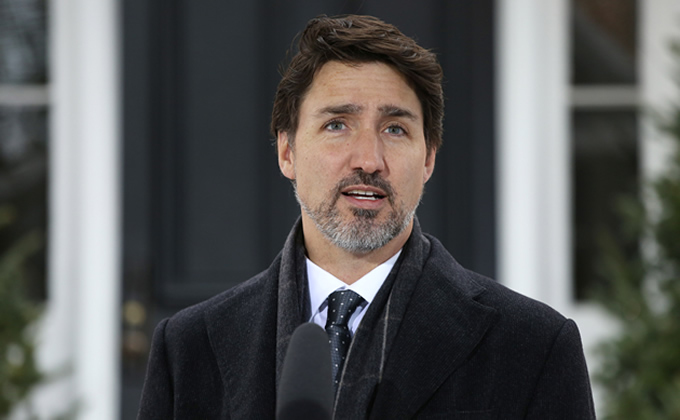
Canada is set to impose retaliatory tariffs on select American goods in response to US trade actions, Prime Minister Justin Trudeau announced on Saturday.
Speaking in a firm tone, Trudeau declared that the Canadian government would impose a 25% tariff on CAD 155 billion (USD 106 billion) worth of American goods, with the first round affecting CAD 30 billion in imports starting Tuesday. The remaining CAD 125 billion worth of tariffs will take effect in three weeks.
“We’re certainly not looking to escalate. But we will stand up for Canada, for Canadians, and for Canadian jobs,” Trudeau said.
The targeted US goods include beer, wine, bourbon, fruits, vegetables, consumer appliances, lumber, and plastics, with further measures expected.
Trade Conflict Escalates
The move comes after US President Donald Trump imposed tariffs on Canadian, Mexican, and Chinese imports, citing concerns over illegal immigration and drug trafficking. Canadian exports to the US will now face a 25% tariff, while energy resources such as oil and natural gas will be subjected to a lower 10% levy.
Trudeau warned of “real consequences” for both nations, predicting job losses, increased costs for food and gasoline, and potential auto plant shutdowns. He also highlighted the potential impact on American access to Canadian nickel, potash, uranium, steel, and aluminum.
A Fractured Relationship
The Canadian Prime Minister reminded the US of their longstanding alliance, referencing Canada’s support during the Iran hostage crisis, the war in Afghanistan, and natural disasters like Hurricane Katrina and the California wildfires.
“We’re always there, standing with you. If President Trump wants to usher in a new golden age for the United States, the better path is to partner with Canada, not to punish us,” Trudeau said.
The announcement has sparked strong reactions across Canada. Provincial leaders have pledged additional measures, such as removing American alcohol from store shelves and diversifying trade partnerships.
Alberta Premier Danielle Smith condemned the US tariffs as a “mutually destructive policy,” warning that they would “strain the important relationship between our two nations.” British Columbia Premier David Eby went further, calling the tariffs “a complete betrayal” and a “declaration of economic war”.
As tensions rise, public sentiment is also shifting. At an NHL game between the Ottawa Senators and Minnesota Wild, the crowd booed the US national anthem, reflecting growing discontent over the trade dispute.
The coming weeks will be crucial in determining whether the situation escalates further or if diplomatic efforts can restore stability to the Canada-US economic relationship.








